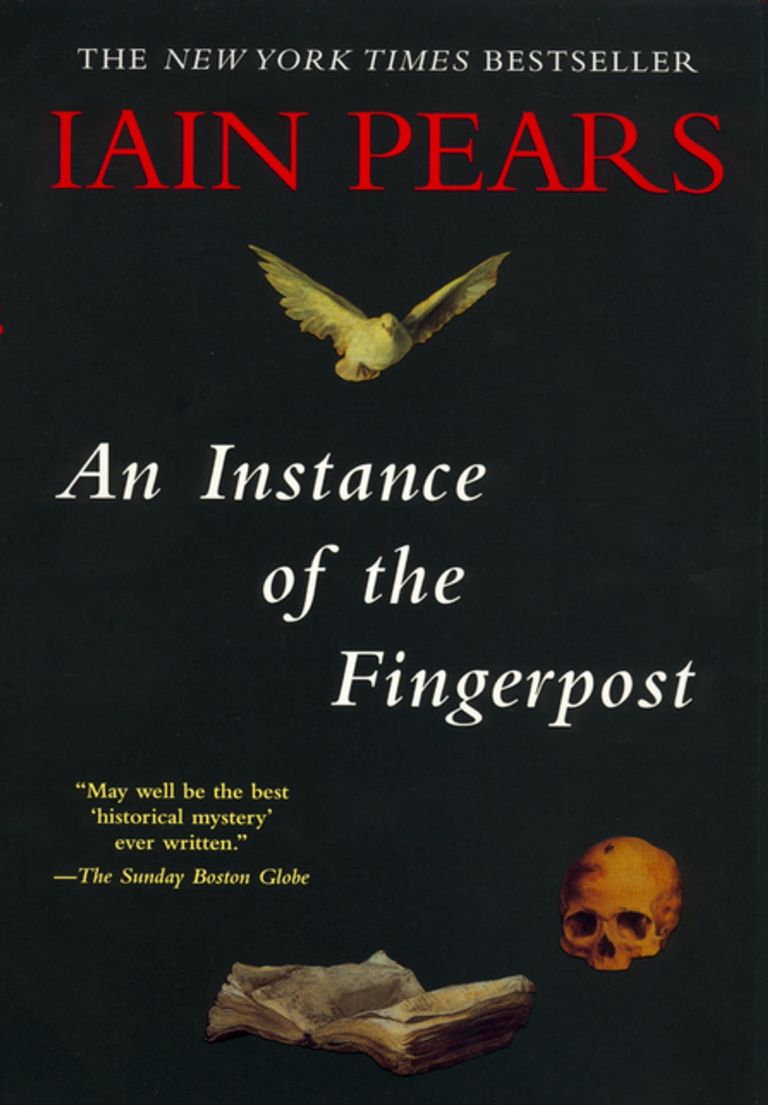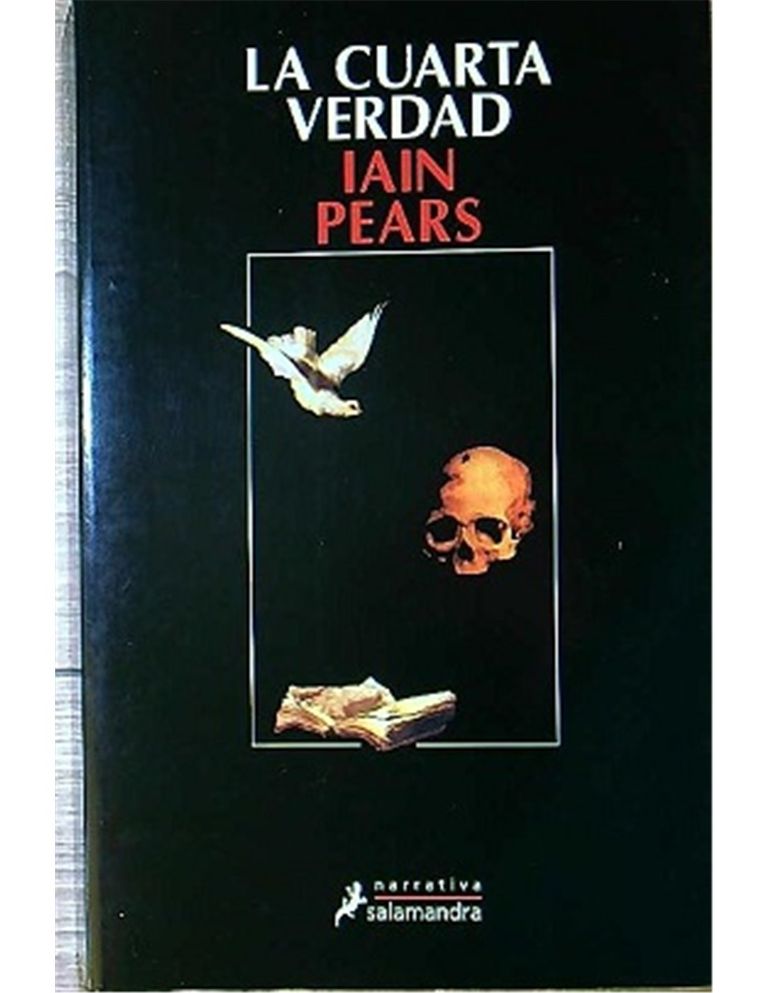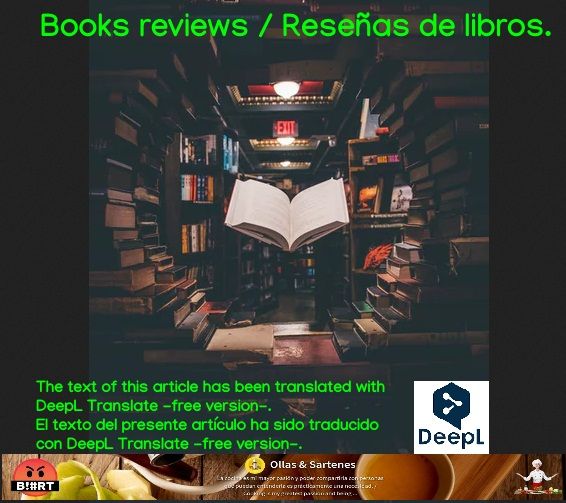
In fact, from the end of the first part of An Instance of the Fingerpost by Iain Pears, the reader understands that he is faced with four witnesses with such different points of view that, even though they all experienced first-hand the murder of a professor in Oxford in 1663, the testimonies, deductions, and conclusions of each protagonist seem, in good faith or by calculation, to contradict those of the others.
Despite an easily predictable final twist, one is driven to get to the end of the over 700 pages of The Fourth Truth, which maintains intact the charm of the novel based on historical sources, on real events and on characters who really existed in England, and in Europe, in the seventeenth century. Diplomacy, intrigues, plots, religious wars, new philosophical and medical theories...
There's something for everyone and even the most demanding reader will appreciate, in addition to the plot, the linguistic effort of Iain Pears who has been able to outline each of the protagonists impeccably also from an expressive point of view.
The truly original idea of this book is to tell the same story four times. What seems like an objective sequence of events acquires, in this way, ever-changing nuances. The banal reality of the first narration (which should not be skipped, even if it's a bit boring, otherwise you won't understand anything!) is necessary to be able to understand the other realities of the subsequent ones. And the truth, each truth, will always be different, yet true, like the successive chemical reactions of a series of successive experiments.
Furthermore, the historical setting (England in the aftermath of the restoration of the Stuart monarchy, in 1664) is taken care of in detail, and is not just a backdrop, but an integral part of the story. Which can also be a limitation: the characters are numerous, and this, together with the references to events that may not always be exactly present to the reader, can create a certain confusion. But, in any case, not enough to undermine understanding.
De hecho, desde el final de la primera parte de La Cuarta Verdad de Iain Pears, el lector comprende que se encuentra frente a cuatro testigos con puntos de vista tan diferentes que, a pesar de haber vivido todos en primera persona el asesinato de un profesor en el Oxford de 1663, los testimonios, las deducciones, las conclusiones de cada protagonista parecen, de buena fe o por cálculo, desmentir las de los demás.
A pesar de un giro final fácilmente predecible, uno se ve obligado a llegar al final de más de 700 páginas. La cuarta verdad mantiene intacto el encanto de la novela basada en fuentes históricas, en hechos reales y en personajes que realmente existieron en Inglaterra y en Europa. , siglo XVII. Diplomacia, intrigas, conspiraciones, guerras religiosas, nuevas teorías filosóficas y médicas...
Hay para todos los gustos y hasta el lector más exigente apreciará, además de la trama, el esfuerzo lingüístico de Iain Pears que supo perfilar de forma impecable a cada uno de los protagonistas también desde el punto de vista expresivo.
La idea verdaderamente original de este libro es contar cuatro veces la misma historia. Lo que parece una secuencia objetiva de hechos adquiere, de este modo, matices siempre cambiantes. La realidad banal de la primera narración (que no conviene saltarse, aunque sea un poco aburrida, ¡de lo contrario no entenderás nada!) es necesaria para comprender las otras realidades de las siguientes. Y la verdad, cada verdad, siempre será diferente, pero verdadera, como las sucesivas reacciones químicas de una serie de experimentos sucesivos.
Además, el escenario histórico (Inglaterra tras la restauración de la monarquía Estuardo, en 1664) se trata en detalle y no constituye sólo un trasfondo, sino que es una parte integral de la historia. Lo que también puede ser una limitación: los personajes son numerosos, y esto, unido a las referencias a acontecimientos que pueden no siempre estar exactamente presentes para el lector, puede crear cierta confusión. Pero, en cualquier caso, no lo suficiente como para afectar la comprensión.

Robert Grove, a professor at New College, Oxford, dies of poisoning and his servant is accused of the crime.
The accused crime of the assassins and condannata of all impiccagione. Four testimoni raccontano the parrot "verità": a Venetian Catholic, Marco da Cola; one student in medicine, Jack Prestscott; a scholar, mathematician and theologian, John Wallis; one studious dell'antichità, Anthony Wood.
But is there only one truth? Preceded by a notable success in England, the United States, France and Italy, where it not only received excellent reviews but also occupied the top spots on the best-seller lists, The Fourth Truth presents the reader with a complete picture of the predominant philosophical ideas of the time.
But the author's great success, undoubtedly attributable to his fine ability to narrate, is to have faithfully recreated not only the habits and customs of a bygone time, but also the way of thinking and seeing the world, without which it would be impossible to find the solution to the complex plot. In short, a real challenge for those who seek in a novel intellectual stimulation as well as the pleasure of reading.
Robert Grove, un profesor del New College de Oxford, muere envenenado y su sirvienta es acusada del crimen.
La joven acusada del asesinato y condenada a la horca. Cuatro testigos cuentan su "verdad": un católico veneciano, Marco da Cola; un estudiante de medicina, Jack Prestscott; un profesor, matemático y teólogo, John Wallis; un antiguo erudito, Anthony Wood.
Pero sólo uno de ellos dice toda la verdad...
Pero, acaso existe una sola verdad?.Precedida de un notable exito en Inglaterra, Estados Unidos, Francia e Italia, donde no solo recibio excelentes criticas, sino que ademas ocupo los primeros puestos de las listas de los libros mas vendidos, La cuarta verdad presenta al lector un cuadro completo de las ideas filosoficas predominantes en la epoca.
Pero el gran acierto del autor, atribuible sin duda a su afinada capacidad de narra, es haber recreado fielmente no solo los habitos y costumbres de un tiempo pasado, sino tambien la manera de pensar y de ver el mundo, sin lo cual seria imposible encontrar la solucion de la compleja trama. En suma, un autentico desafio para quienes buscan en una novela el estimulo intelectual ademas del placer de la lectura.

Reading this book was a fascinating experience.
Now, I don't want to shout about the masterpiece, the great literature. If anything, the beautiful novel. Which makes you reflect on how, in an era like ours that seems to want to seek the truth, the objective reality at all costs, mediations are necessary and force our opinion towards an obligatory track of thought, from which only with an effort we can detach ourselves.
Normally we are used to and give more consideration to what is written, rather than what is said to us verbally. We suffer, to some extent, a certain veneration towards the written word, better if printed, but now also web-based. Of course, there is always a certain distrust for the web, but we tend to consider what is written on some sites as more trustworthy than others, or even, in some cases, superior to what we find between the printed characters. Of course, if you read something on Ipazia Sognatrice's blog, and you read the opposite on Corriere.it, you have no doubts about who should be the custodian of our trust (I deliberately leave this sentence hanging, so maybe someone will fall for it... ).
In reality, every message, regardless of the medium, is always the bearer of one of the thousand possible truths. Or rather, among the thousand interpretations of the truth that we could find. And if this can comfort us about the humanity that permeates and envelops everything, it also throws us into an even greater embarrassment: that of having to choose who, and to what extent, to believe. But I will return to this, I hope.
Meanwhile, one last thing about Pears' book: the Italian title La quarta verità is rather flat, mute, compared to the original An instance for the Fingerpost, which harks back to, no less, the writings of Lord Bacon, where the crucial room was the experiment, the element that finally manages to indicate to the scientist which path to follow, after a series of insignificant experiments, exactly like a road sign (fingerpost, in fact). Perhaps, a title like L'attesa circolare, or La quarta istante would have held up better in comparison, albeit a losing one, with the original.
Leer este libro fue una experiencia fascinante.
Ahora bien, no quiero hablar de obras maestras, de gran literatura. En todo caso, una buena novela. Lo que nos hace reflexionar sobre cuánto, en una época como la nuestra, que parece querer buscar la verdad, la realidad objetiva, a toda costa, las mediaciones son necesarias y obligan a nuestra opinión hacia un binario obligatorio de pensamiento, del que sólo con esfuerzo podemos desapegarnos.
Normalmente estamos acostumbrados a prestar más atención a lo que se escribe que a lo que se nos cuenta de forma oral. Sufrimos, en cierta medida, una cierta veneración hacia la palabra escrita, preferentemente impresa, pero ahora también en la web. Por supuesto, siempre existe cierta desconfianza hacia Internet, pero tendemos a considerar lo escrito en algunos sitios más confiable que otros, o incluso, en algunos casos, superior a lo que encontramos en caracteres impresos. Por supuesto, si lees una cosa en el blog de Ipatia Sognaatrice y lees lo contrario en Corriere.it, no tienes dudas sobre quién debe ser el custodio de nuestra confianza (dejo deliberadamente esta frase en el aire, así tal vez alguien caiga en la trampa). ..).
En realidad, cada mensaje, independientemente del medio, siempre conlleva una entre mil verdades posibles. O mejor dicho, entre las mil interpretaciones de la verdad que pudimos encontrar. Y si esto puede consolarnos sobre la humanidad que todo lo impregna y lo envuelve, también nos arroja a una vergüenza aún mayor: la de tener que elegir a quién y en qué medida creer. Pero espero volver sobre esto.
Mientras tanto, una última cosa sobre el libro de Pears: el título italiano La cuarta verdad es más bien soso, mudo, en comparación con el original Una instancia para el Fingerpost, que remite, nada menos, a los escritos de Lord Bacon, donde la estrofa crucial fue el experimento, el elemento que finalmente consigue indicar al científico qué camino seguir, después de una serie de experimentos insignificantes, exactamente como una señal de tráfico (un dedo, de hecho). Quizás un título como The Crucial Instance o The Fourth Instance habría resistido mejor la comparación, aunque todavía perdedora, con el original.
Source images / Fuente imágenes.


Upvoted. Thank You for sending some of your rewards to @null. Get more BLURT:
@ mariuszkarowski/how-to-get-automatic-upvote-from-my-accounts@ blurtbooster/blurt-booster-introduction-rules-and-guidelines-1699999662965@ nalexadre/blurt-nexus-creating-an-affiliate-account-1700008765859@ kryptodenno - win BLURT POWER delegationNote: This bot will not vote on AI-generated content
Thanks @ctime.